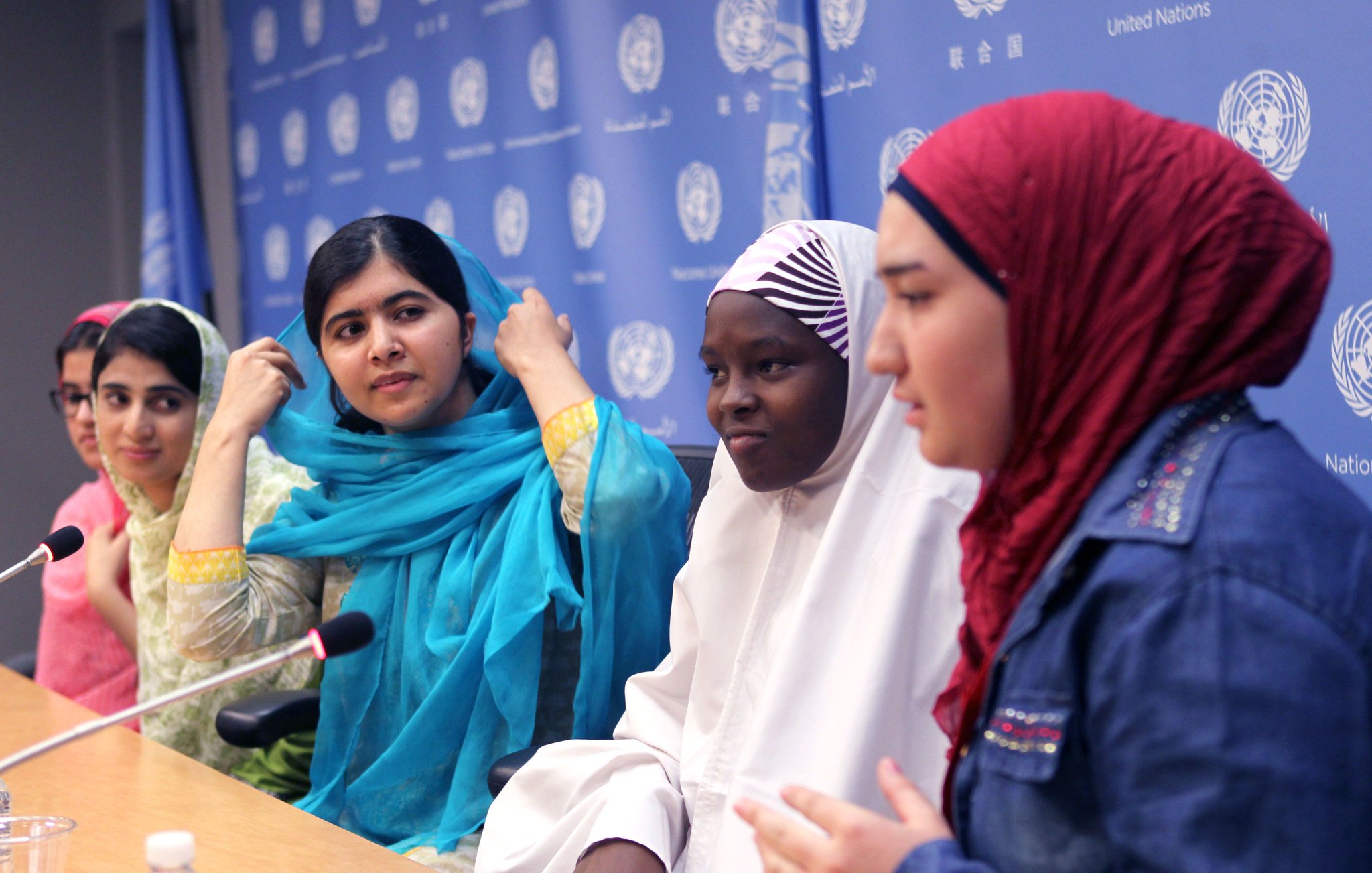M WAQAR..... "A man's ethical behavior should be based effectually on sympathy, education, and social ties; no religious basis is necessary.Man would indeed be in a poor way if he had to be restrained by fear of punishment and hope of reward after death." --Albert Einstein !!! NEWS,ARTICLES,EDITORIALS,MUSIC... Ze chi pe mayeen yum da agha pukhtunistan de.....(Liberal,Progressive,Secular World.)''Secularism is not against religion; it is the message of humanity.'' تل ده وی پثتونستآن
Monday, September 24, 2018
Malala says youth won't accept world where decisions for their future are made in rooms
The youngest-ever Nobel Prize laureate and the Pakistani activist for female education, Malala Yousafzai, who is attending the United Nations Youth2030 conference, has said that the youth will not accept a world where decisions of their future are made in rooms in which they cannot enter.
In her tweet on Tuesday, Malala Yousafzai warmly felicitated the young leaders for participating the United Nations Youth2030 conference which is being held at the New York.
Seeking opportunity for the youth in decision making worldwide, the noble laureate further said; "We will not accept a world where decisions of their future are made in rooms in which we cannot enter."
She is attending the United Nations Youth2030 conference being held at the New York to highlight the the role of youth in coming future.
We will not accept a world where decisions about our future are made in rooms we cannot enter. Congratulations to all the young leaders participating in #Youth2030 today.
Malala Yousafzai has become an internationally recognised symbol of motivation for the women the youth for her active role to promote education and awareness campaign.
In 2014, Yousafzai became the youngest recipient of the Nobel Peace Prize at the age of 17 in recognition of her efforts for children's rights.
#Pakistan - The Gender Disparity
No nation can ever rise to the height of glory unless its women are side by side with the men. This quote by our founder, Muhammad Ali Jinnah, rings true in our ears with every passing year, as Pakistan attempts to make its public sphere, restrained by patriarchal bounds, more female-friendly. Though our country has progressed when it comes to women empowerment, with the passing of several pro-women laws, yet the legal safe-guards that our parliament has passed often don’t translate into real ground work. The statistics released on women participation in society still show numbers on the lower side.
As per the Establishment Division’s statistical bulletin about the employees of the federal government and its autonomous bodies for 2016-17, of the total 649,176 sanctioned posts in the federal government, only 5.48pc are currently occupied by women and 2.82pc by non-Muslims. The total number of sanctioned posts are 649,176, but 78,623 of them are lying vacant-compare this number to the actual strength of women employees which stands at 31,281— there are more vacant positions than female employees currently. The quotas for women and minorities are in place- but there are no women and non-Muslims to be seen.
Many might see these statistics as fodder for their “women are not fit for public life” argument. Yet studies indicate that women perform better at the CSS examinations than men. In 2016, the top three positions of the CSS exam were taken by women. Why then this disparity? It seems that there are still many cultural barriers and stereotypes in play which prevent women from participating in public life. There is a perception in the public offices that due to the cultural barriers associated with marriage and children, women will not continue work. It is also an undeniable fact that women pass over tough postings in rural or small cities due to the highly women-unfriendly environment and work-place.
However these are not impenetrable barriers. From these statistics, Punjab has fared better than the other provinces, with surprisingly higher number of women in top posts, showing it is possible to come closer to fulfilling the quotas. By inducting more women into policy-making, making the work environment more conducive for mothers and introducing more technical cadres in the public departments, the government can work towards overcoming the huge gender disparity that exists. We may be receiving disappointing statistics for equality- but these numbers can be changed and they should in Naya Pakistan.

